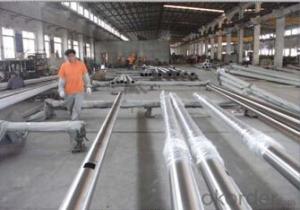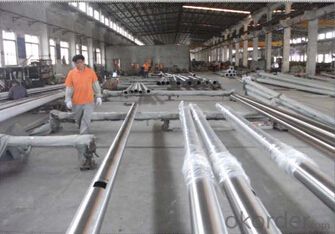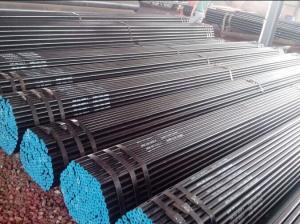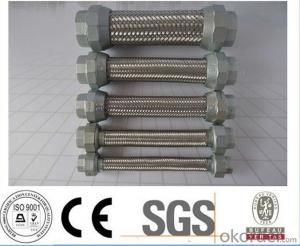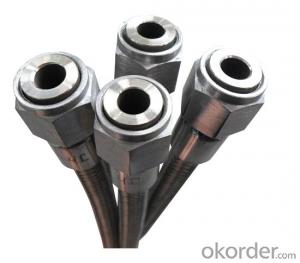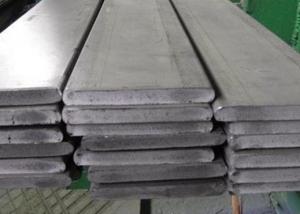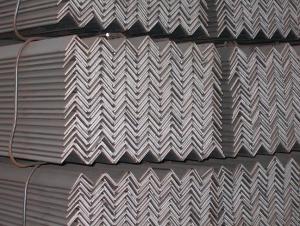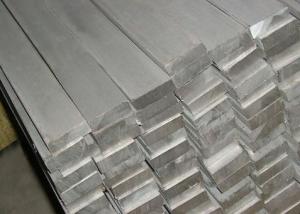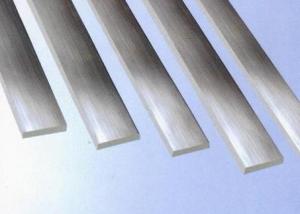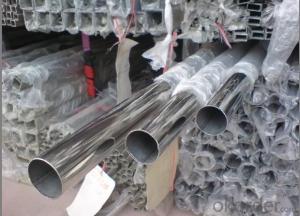FEED WATER STAINLESS PIPE 304
- Loading Port:
- China Main Port
- Payment Terms:
- TT OR LC
- Min Order Qty:
- -
- Supply Capability:
- -
OKorder Service Pledge
Quality Product, Order Online Tracking, Timely Delivery
OKorder Financial Service
Credit Rating, Credit Services, Credit Purchasing
You Might Also Like
Specifications
1. Guaranteed material from established steel factories2. Accordance with International standard
3. Attractive 304 316price
PRODUCT NAME: 304 FEED WATER PIPE
| Name | 304 FEED WATER PIPE |
| Standard | ASTM, GB, JIS, DIN, EN, AISI |
| Material Grade | TP304 TP304L TP316 TP316L TP347 TP347H TP321 TP321H TP310 TP310S |
| TP410 TP410S TP403 | |
| S31803/S32205 S32750 S32760 | |
| Outer Diameter | Welded Pipe: single slit(Φ8mm-Φ630mm); girth(Φ630mm-Φ3000mm), |
| Thickness | Welded Pipe: single slit(0.5mm-25mm); girth(3mm-30mm) |
| Length | Commonly 5.8 Meters or 6.0 Meters, or as customers' request |
| Tolerance | According to the Standard, +/-10% Commonly. |
| Surface | 180#, 320#, 400# Satin / Hairline, Bright Anneal, Pickle,400#, 500#, 600# or 800# Mirror finish |
| Application | Petrochemical industry, chemical fertilizer industry, oil refining industry, oil and gas industry, light industry and food industry, pulp and paper industry, energy and environmental industries. |
| Test | Flaring test, Flattening test, Bending Test, Hydraulic Test, Eddy Current test |
- Q:What is the difference between Type 409 and Type 410 stainless steel pipes?
- Type 409 and Type 410 stainless steel pipes are two different grades of stainless steel that have distinct characteristics and applications. Type 409 stainless steel is a ferritic stainless steel that contains a lower percentage of chromium compared to Type 410. It is primarily composed of iron, carbon, and up to 11% chromium. This composition gives Type 409 stainless steel good corrosion resistance in low-oxygen environments and moderate resistance to pitting and crevice corrosion. It is often used in applications where high-temperature oxidation resistance is not required, such as automotive exhaust systems, catalytic converter shells, and heat exchangers. On the other hand, Type 410 stainless steel is a martensitic stainless steel that contains a higher percentage of chromium (around 11-13%) and a small amount of nickel. This composition provides Type 410 stainless steel with excellent corrosion resistance and good mechanical properties. It is a general-purpose stainless steel that can be heat treated to achieve high strength and hardness. Type 410 stainless steel is commonly used in applications where corrosion resistance and/or wear resistance is required, such as cutlery, surgical instruments, valves, and pump parts. In summary, the main difference between Type 409 and Type 410 stainless steel pipes lies in their composition and resulting properties. Type 409 stainless steel is a ferritic stainless steel with good corrosion resistance in low-oxygen environments, while Type 410 stainless steel is a martensitic stainless steel with excellent corrosion resistance and higher strength and hardness. The choice between these two types of stainless steel pipes depends on the specific application requirements and the desired properties needed for that application.
- Q:Are stainless steel pipes resistant to abrasion?
- Yes, stainless steel pipes are highly resistant to abrasion. This is due to the unique properties of stainless steel, such as its high hardness and strength. Stainless steel pipes are made from an alloy that contains a minimum of 10.5% chromium, which forms a protective layer on the surface that prevents rusting and corrosion. This protective layer also helps to resist abrasion, making stainless steel pipes an excellent choice for applications where there is a high risk of wear and tear. Additionally, stainless steel pipes can withstand high temperatures and are highly durable, making them ideal for industries such as oil and gas, chemical, and construction.
- Q:Can stainless steel pipes be painted?
- Indeed, it is possible to paint stainless steel pipes. Nevertheless, it should be taken into account that stainless steel is a non-porous substance with a sleek surface, posing difficulties for paint to adhere effectively. In order to achieve proper adhesion, it is advisable to diligently cleanse the surface and utilize a primer specially formulated for stainless steel. This will aid in creating a coarser texture on the surface, facilitating better bonding with the paint. Furthermore, opting for a superior, long-lasting paint suitable for metal surfaces will bolster the durability of the painted coating.
- Q:Can stainless steel pipes be threaded with NPT threads?
- Yes, stainless steel pipes can be threaded with NPT (National Pipe Thread) threads. NPT is a widely used standard for pipe threads in the United States, and it is suitable for both stainless steel and other materials. However, it is important to note that stainless steel has a higher strength and hardness compared to other materials, which may require more care and attention during the threading process. Additionally, it is recommended to use lubricants or cutting fluids specifically designed for stainless steel to ensure a smooth and accurate threading operation.
- Q:Can stainless steel pipes be used in the food processing industry?
- The food processing industry can make use of stainless steel pipes. Stainless steel is a preferred option in food processing because it possesses numerous advantageous qualities. Firstly, stainless steel's resistance to corrosion is vital in an environment where food and liquids are constantly being handled and processed. Additionally, stainless steel's easy maintenance and cleaning are crucial for ensuring hygiene and preventing contamination in food processing. Stainless steel pipes are also highly durable and strong, enabling them to withstand the demanding conditions of the food processing industry. Furthermore, stainless steel does not react chemically with food or ingredients, ensuring that the quality and taste of processed products remain unaffected. Overall, stainless steel pipes are an exceptional choice for the food processing industry due to their resistance to corrosion, cleanliness, durability, and non-reactive properties.
- Q:Can stainless steel pipes be used for solar power systems?
- Yes, stainless steel pipes can be used for solar power systems. Stainless steel is a commonly used material in solar power systems due to its durability, corrosion resistance, and high temperature tolerance. It is often used for the construction of solar water heaters, solar thermal collectors, and solar panel frames.
- Q:Can stainless steel pipes be insulated with polyethylene-co-vinyl acetate?
- Indeed, it is possible to insulate stainless steel pipes with polyethylene-co-vinyl acetate (PEVA). PEVA is widely utilized as an insulating substance owing to its remarkable thermal insulation characteristics. This material is both flexible and long-lasting, allowing for easy application to stainless steel pipes for insulation objectives. PEVA insulation contributes to the prevention of heat loss or gain, diminishes energy consumption, and furnishes protection against condensation. Furthermore, PEVA exhibits resistance against moisture, chemicals, and UV radiation, rendering it suitable for outdoor applications. Consequently, employing PEVA as insulation for stainless steel pipes presents a feasible alternative.
- Q:Can stainless steel pipes be coated with PTFE?
- Yes, stainless steel pipes can be coated with PTFE (polytetrafluoroethylene) to improve their corrosion resistance, reduce friction, and provide a nonstick surface. The PTFE coating creates a protective barrier on the stainless steel, making it suitable for various applications in industries such as chemical processing, food processing, and pharmaceuticals.
- Q:Can stainless steel pipes be used for geothermal systems?
- Yes, stainless steel pipes can be used for geothermal systems. Stainless steel is highly resistant to corrosion and can withstand the high temperatures and pressures involved in geothermal applications, making it an ideal choice for these systems.
- Q:What is the average cost of stainless steel pipes?
- The cost of stainless steel pipes can differ based on several factors, including pipe size, grade, thickness, supplier, and location. Generally, stainless steel pipes may cost anywhere between $5 and $50 per foot. Nevertheless, it is crucial to acknowledge that prices may vary due to market conditions and other influences. To obtain a more precise estimate for the required stainless steel pipes' specific type and quantity, it is advisable to conduct thorough research and compare prices from various suppliers.
1. Manufacturer Overview |
|
|---|---|
| Location | |
| Year Established | |
| Annual Output Value | |
| Main Markets | |
| Company Certifications | |
2. Manufacturer Certificates |
|
|---|---|
| a) Certification Name | |
| Range | |
| Reference | |
| Validity Period | |
3. Manufacturer Capability |
|
|---|---|
| a)Trade Capacity | |
| Nearest Port | |
| Export Percentage | |
| No.of Employees in Trade Department | |
| Language Spoken: | |
| b)Factory Information | |
| Factory Size: | |
| No. of Production Lines | |
| Contract Manufacturing | |
| Product Price Range | |
Send your message to us
FEED WATER STAINLESS PIPE 304
- Loading Port:
- China Main Port
- Payment Terms:
- TT OR LC
- Min Order Qty:
- -
- Supply Capability:
- -
OKorder Service Pledge
Quality Product, Order Online Tracking, Timely Delivery
OKorder Financial Service
Credit Rating, Credit Services, Credit Purchasing
Similar products
New products
Hot products
Hot Searches
Related keywords
